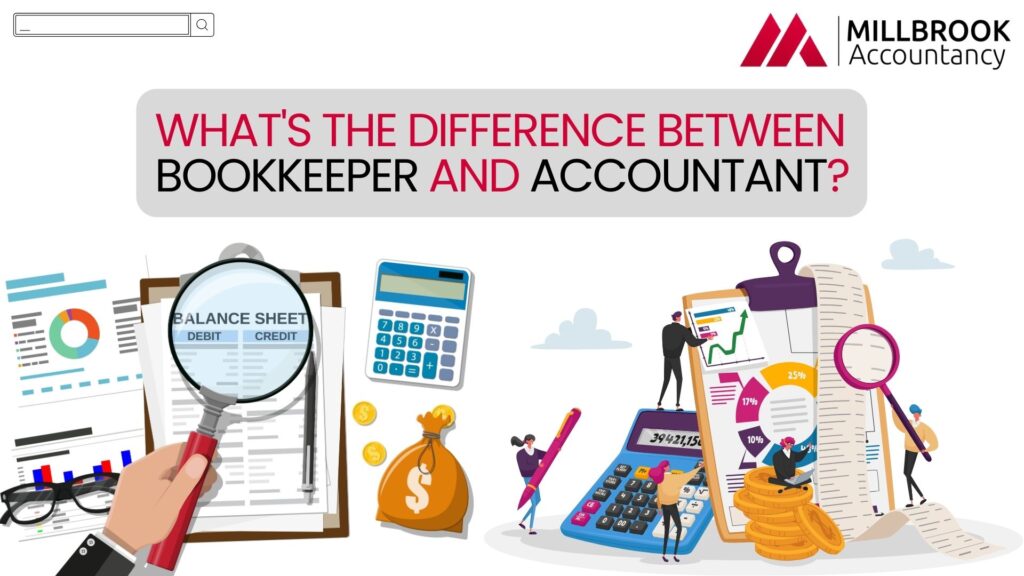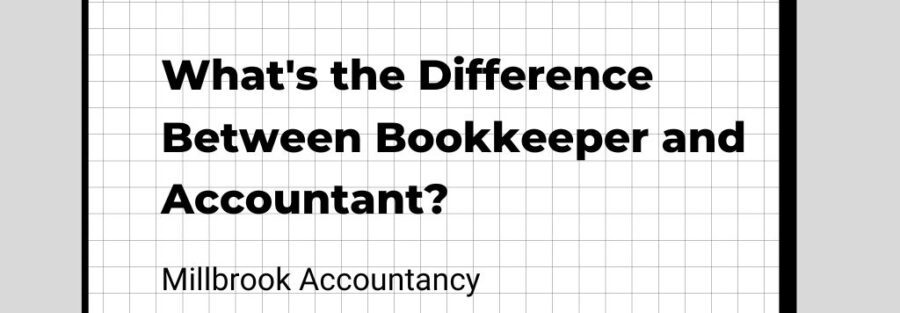In the fast-paced world of business, understanding the Difference between a bookkeeper and an accountant is crucial. Both play vital roles in financial management, yet they differ significantly in their responsibilities and qualifications. Let’s dive into the intricacies and shed light on What’s the Difference Between Bookkeeper and Accountant?


Introduction: What’s the Difference Between Bookkeeper and Accountant?
Navigating the financial landscape of a business can be perplexing. As an entrepreneur, you might find yourself pondering the distinctions between bookkeeping and accounting. This article aims to demystify these roles, providing clarity on their functions, skills required, and the impact they have on your business’s financial success.
Bookkeeping Unveiled
Recording Financial Transactions
At the core of bookkeeping lies the meticulous recording of daily transactions. This includes posting credits and debits, issuing invoices, and maintaining and balancing general ledgers. The frequency of updates depends on the business’s size, ranging from daily to monthly.
Bookkeepers’ Authorizations
Contrary to accountants, bookkeepers typically don’t require formal qualifications. Profound knowledge of financial principles and accuracy are their key assets. Small business owners can benefit from outsourcing bookkeeping services, ensuring privacy and receiving tax and audit-ready financials.
Accounting Explored
Utilizing Financial Information
Accounting takes the data compiled by bookkeepers and transforms it into a comprehensive financial model. This results in a deeper understanding of cash flow and actual profitability. Responsibilities include preparing financial statements, completing income tax returns, and conducting cost-of-operations analyses.
Accounting Eligibility
To bear the title of an accountant, a bachelor’s degree in accounting is essential. Further studies can lead to becoming a Certified Public Accountant (CPA), a widely recognized qualification. Accountants offer strategic advice on tax planning, tax filing, and financial forecasting.
Comparative Analysis
To better illustrate the disparities between bookkeeping and accounting, let’s examine the key differences in a concise table:
| Aspect | Bookkeeping | Accounting |
|---|---|---|
| Qualifications | Limited formal requirements | Bachelor’s degree in accounting; CPA for advanced roles |
| Responsibilities | Recording transactions, issuing invoices | Financial modeling, tax returns, cost analysis |
| Expertise | Financial principles, accuracy | Strategic financial advice, forecasting |
| Daily Operations | Daily to monthly updates | In-depth analysis and periodic financial assessments |
How Both Help Your Business Grow
In your quest for a small business accountant in London, consider the advantages. Dedicated accountants offer services from self-assessment tax filing to bespoke accountancy solutions. Qualified teams ensure flawless documentation, providing valuable advice on tax returns, credit and interest statements, and retirement tax planning.
Conclusion: Making Informed Decisions
In conclusion, comprehending the difference between bookkeepers and accountants is pivotal for effective financial management. Whether you choose to rely on a proficient bookkeeper for daily transactions or enlist the strategic insights of an accountant, both roles contribute significantly to your business’s success.
As you navigate the intricate world of finance, remember that each role, bookkeeper and accountant, plays a unique part in the grand symphony of your business’s financial well-being. By understanding their distinct contributions, you empower yourself to make informed decisions that pave the way for growth and prosperity.




